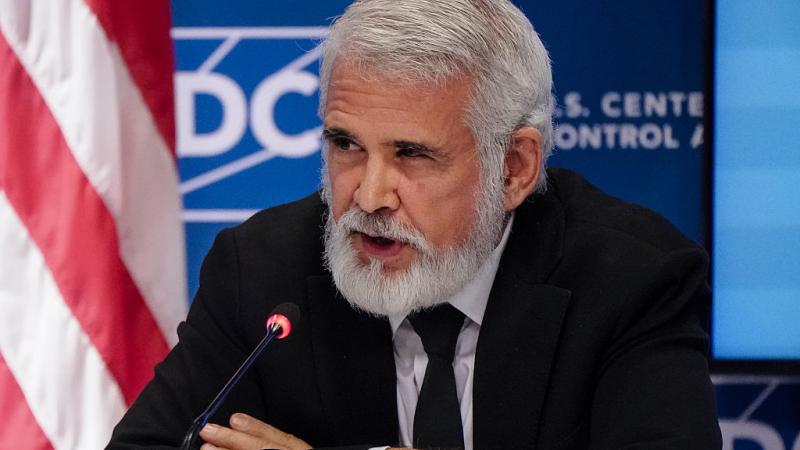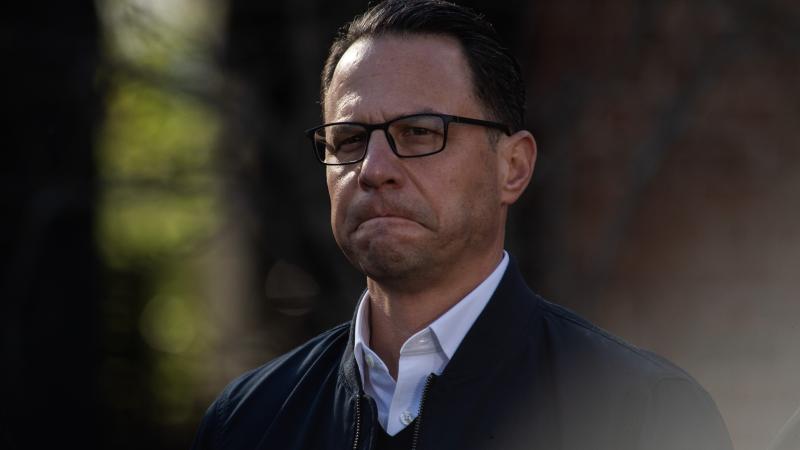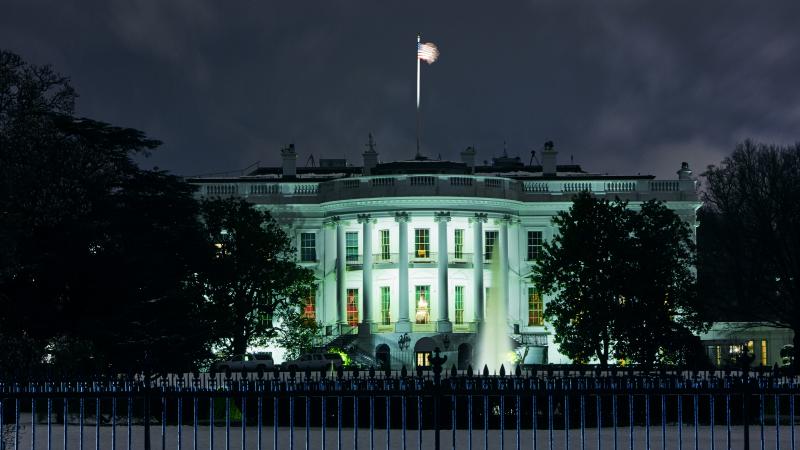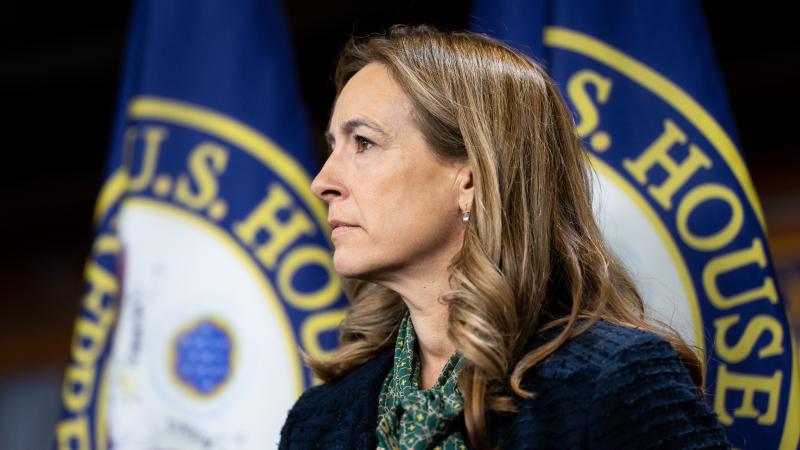Connecticut university system throws professor under the bus for challenging 1619 Project
Leaders conspicuously left out Jay Bergman's academic freedom and tenure rights in responding to controversy.
Central Connecticut State University history professor Jay Bergman tried to convince his state's public schools to exclude the 1619 Project from their history curricula, questioning its sweeping claims that "white racism" drove America's independence from Britain.
At least one superintendent among more than 200 he contacted objected to Bergman's efforts, as did several of his history colleagues and other CCSU faculty. His department chair scolded Bergman for using his university email address and affiliation, and another professor demanded his formal censure, according to an investigation by NBC Connecticut.
While CCSU and the state university higher education system declined to punish Bergman, who is tenured, it conspicuously left out any mention of his academic freedom and contractual rights in responding to the controversy.
That has left him wary of what might come this fall, when Bergman's critics could regroup and come after him from the start of the academic year.
If that happens, "I would not be surprised at that time that students joined in the auto-da-fe," he wrote in an email to Just the News. A student this spring called him racist in an anonymous course evaluation, possibly for noting the West had military superiority over other civilizations because of "the Scientific Revolution and the Enlightenment," Bergman said.
"I do feel constrained in ways that I wasn't aware of before so many of my colleagues, in twelve academic departments, and my faculty union, to which I faithfully paid dues, called me a racist or otherwise maligned my integrity and moral character, and even my intelligence," he said.
While he's received a surprising number of supportive emails from CCSU faculty, Bergman is disappointed they haven't spoken publicly. "I suspect there is much more opposition to the far-left agenda that passes for the conventional wisdom in academia today than one might think in light of the high decibel level at which supporters of this agenda tend to express themselves," he said.
Tenured faculty can face a variety of punishments short of termination for expressing unpopular views in their communities, particularly when they involve race.
The University of Pennsylvania law school banned professor Amy Wax from teaching required first-year courses following her comments about black academic underperformance. University of Pittsburgh medical professor Norman Wang lost his administrative position at its affiliated hospital for writing a paper claiming that affirmative action harms minority medical students. Administrators also convinced the publisher to retract the paper.
Use of affiliation questioned
Bergman's letters to superintendents starting in January opened by appealing to progressive sensibilities. He cited critiques of the 1619 Project from "some of the most eminent American historians in the United States today, most of whom are politically liberal and were highly critical of the Trump Administration."
The 15 largest school districts in Washington state, among the most politically progressive in the United States, have also declined to adopt the K-12 curriculum based on the project, he wrote.
Speaking from his specialty in European history, Bergman argued that a central conceit of the project — that industrialization perpetuated slavery — ignores the "rural and agrarian" foundation of slavery. Wherever industrialization proceeds, with machinery replacing human labor, "whatever political influence slaveholders have inevitably diminishes."
But the history professor also let fly with his feelings about project creator Nikole Hannah-Jones, an "anti-white bigot" who claims whites are descended from "savages" and Christopher Columbus is "morally indistinguishable" from Adolf Hitler.
"The project is thus a form of extortion, a means of preying on unwarranted white guilt for what are nefarious and self-serving purposes," he wrote.
In a February letter to CCSU President Zulma Toro and Connecticut State Colleges and Universities (CSCU) President Jane Gates, Putman Public Schools Superintendent Daniel Sullivan blasted Bergman for his "utter disregard for the centuries-long struggles of minority communities" and "desire to invalidate their feelings and justified calls for reform" to address systemic racism.
As an employee of CSCU, Bergman "represents" the public university system, yet he has promoted these "problematic" ideas in "several other op-ed pieces," Sullivan wrote. He criticized Bergman for faulting the University of Connecticut's 11-day effort to identify students yelling racial slurs in an empty parking lot and decision to refer them for prosecution under the state's "ridicule" law.
Gates quickly wrote back to Sullivan, calling many of Bergman's statements "highly objectionable" and unreflective of the university system. She discussed the letter with CCSU President Toro, and both support the Putnam district teaching students about "the systemic racism on which the country was built and which permeates society today."
Toro later told NBC Connecticut that Bergman doesn't speak for the university and she's in "full support" of Gates' sentiments.
According to the National Association of Scholars (NAS), where Bergman is a board member, Sullivan brought the letter and his response to NBC Connecticut in April. (The station said it got correspondence through a public records request.)
It was the only criticism the history professor had heard at the time, with only two responses to his letters, both positive, according to NAS. The report led six history colleagues to publicly scold Bergman for using his CCSU affiliation rather than speaking "as a citizen ... in an area where he lacks expertise," though all signed the letter with their university affiliations.
NAS published other calls by professors for CCSU to denounce Bergman. The university's chapter of the American Association of University Professors accused him of trying to "bully superintendents" and implied he violated his union contract by showing "little respect for Connecticut's communities" and lacking "restraint."
The criticism of Bergman for speaking as a CCSU professor perplexed George Washington University law professor Jonathan Turley. "It is entirely common for professors to use their titles ... when speaking publicly on controversies," he wrote, and they are "encouraged to contribute to their communities and contribute to national and local debates."
"It's hard to escape the conclusion" in Sullivan's letter to CCSU and CSCU leaders "that he was nudging them to take action against Bergman merely for saying things that Sullivan found offensive," as were his faculty critics, the Foundation for Individual Rights in Education said.
Even with no mention of discipline for Bergman, "the university's response to Sullivan disappointingly made no mention of its faculty members' freedom of speech and academic freedom," FIRE said.
CCSU and CSCU did not respond to Just the News queries about whether Bergman violated any policy by sharing his views with his affiliation and title, and whether its silence on his academic freedom and contractual rights could lead to chilling effects among other faculty.
The university's failure to defend his rights will not stop Bergman from speaking on public issues or using his institutional affiliation, as did his history colleagues in their "intemperate and gratuitously nasty letter publicly denouncing me," he told Just the News.
He refuses to alter "either my political opinions or my judgments as a historian," but will continue to maintain "strict separation of the two," Bergman emphasized. "Professors who gratuitously inject their politics into their courses are guilty of academic malpractice and should be held strictly and severely accountable for it by their institution."















